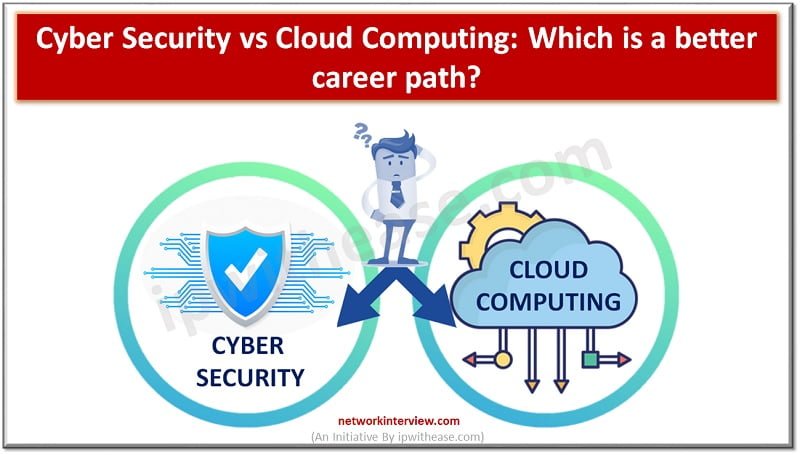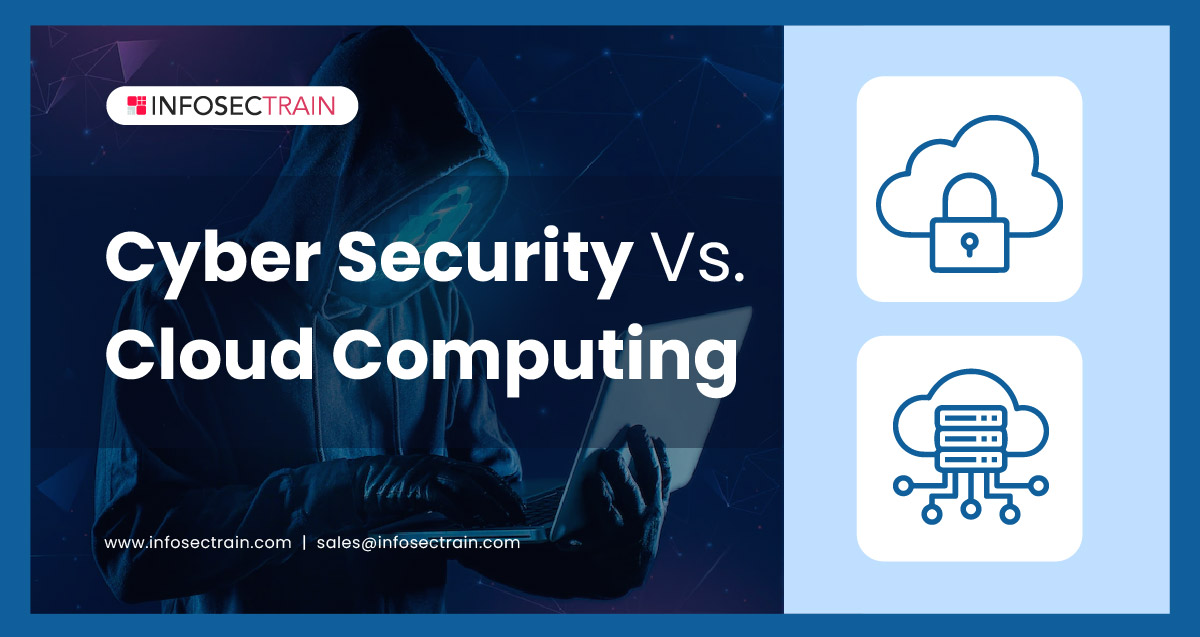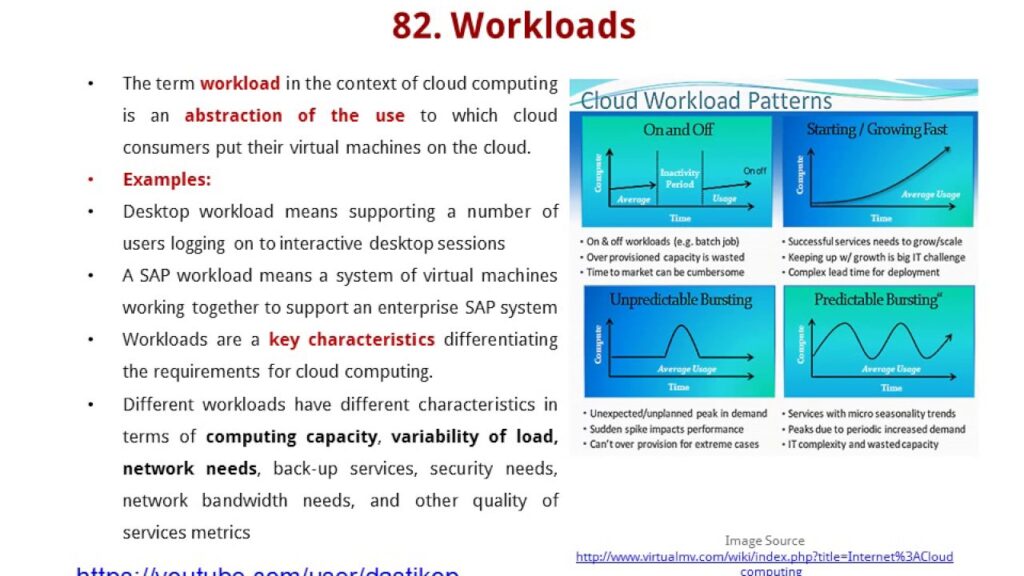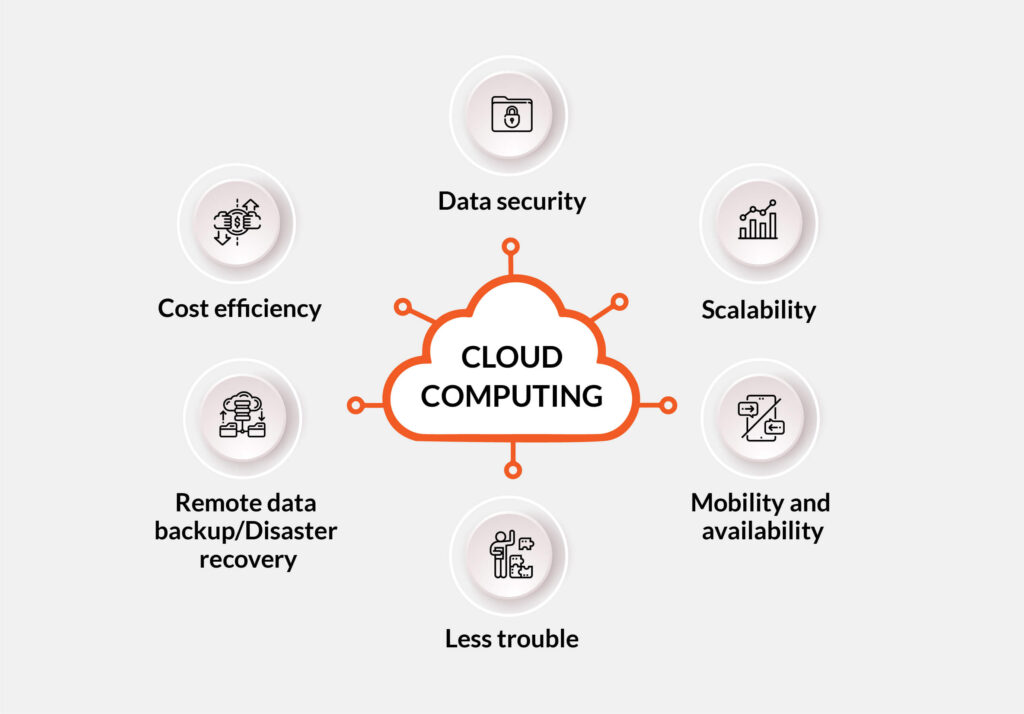As technology continues to advance, businesses and individuals alike are faced with a plethora of choices when it comes to their digital needs. One of the most pressing decisions in today’s tech landscape is whether to prioritize cloud computing or cyber security. Each option has its own set of benefits and drawbacks, and making the right choice depends on a variety of factors. In this article, we will explore the advantages and disadvantages of each option, as well as provide tips for making an informed decision.
Cloud computing has become an increasingly popular option for businesses of all sizes. It allows for easy access to data and applications from anywhere with an internet connection, as well as the ability to scale up or down resources as needed. However, with this convenience comes potential security risks. Cyber attacks on cloud-based systems have become more frequent in recent years, and businesses must take measures to ensure their data is protected. On the other hand, cyber security prioritizes protecting data and systems from potential threats, but can sometimes hinder the accessibility and flexibility that cloud computing provides. So, which is better for your business? Let’s dive in and find out.
language

Cloud Computing Vs. Cyber Security
Cloud computing and cyber security are two essential aspects of information technology, enabling businesses and organizations to operate efficiently and securely. While both cloud computing and cyber security have their advantages and disadvantages, making the decision of which one is better can be difficult. In this article, we will discuss the differences between these two technologies, and provide an overview of their advantages and disadvantages.
What is Cloud Computing?
Cloud computing is a form of IT infrastructure management that allows organizations to store and access data, applications, and other resources via the Internet. It is typically hosted on an external server, allowing users to access data from anywhere, at any time. Cloud computing can provide organizations with a number of advantages, including scalability, cost savings, and enhanced security.
However, cloud computing can also present some challenges. Since the data is stored on a remote server, organizations must ensure that their data is secure and that their cloud provider is reliable and trustworthy. Additionally, organizations must ensure that their cloud computing infrastructure is up to date and compliant with all applicable laws and regulations.
What is Cyber Security?
Cyber security is a form of information security that focuses on protecting networks, systems, and data from unauthorized access and malicious attacks. Cyber security includes a wide range of measures, such as firewalls, anti-virus software, authentication protocols, and encryption. Cyber security measures are designed to prevent, detect, and respond to cyber threats and attacks.
Cyber security measures can help organizations protect their data and systems from malicious actors, but they are not foolproof. Organizations must remain vigilant and continually update their cyber security measures to stay ahead of the latest threats. Additionally, organizations must invest in staff training and education to ensure that their employees understand the importance of cyber security and how to implement the necessary measures.
Advantages and Disadvantages of Cloud Computing
Cloud computing offers a number of advantages, including scalability, cost savings, and enhanced security. Organizations can quickly and easily scale their cloud computing infrastructure to meet their changing needs and can benefit from the cost savings associated with not having to purchase and maintain their own hardware and software. Additionally, cloud computing can provide organizations with enhanced security measures, such as data encryption and authentication protocols.
However, there are some drawbacks to cloud computing that organizations must consider. Organizations must ensure that their cloud provider is reliable and trustworthy, and must ensure that their data is secure. Additionally, organizations must ensure that their cloud computing infrastructure is up to date and compliant with all applicable laws and regulations.
Advantages and Disadvantages of Cyber Security
Cyber security measures can provide organizations with a number of advantages, including protection from malicious actors and improved compliance with applicable laws and regulations. Additionally, cyber security measures can help organizations detect and respond to cyber threats before they become a problem.
However, there are some drawbacks to cyber security measures that organizations must consider. Cyber security measures can be expensive to implement, and organizations must continually invest in staff training and education to ensure that their employees understand the importance of cyber security and how to implement the necessary measures. Additionally, cyber security measures are not foolproof and can be circumvented by sophisticated actors.
Conclusion
Cloud computing and cyber security are both essential aspects of information technology, and organizations must weigh the advantages and disadvantages of each technology to decide which one is better for their needs. Cloud computing can provide organizations with scalability, cost savings, and enhanced security, but organizations must ensure that their data is secure and that their cloud provider is reliable and trustworthy. Cyber security measures can provide organizations with protection from malicious actors and improved compliance with applicable laws and regulations, but organizations must invest in staff training and education to ensure that their employees understand the importance of cyber security.
Frequently Asked Questions
Cloud Computing and Cyber Security are two important aspects of IT infrastructure. Both are essential for protecting data and information from malicious actors. So, which is better for businesses, Cloud Computing or Cyber Security? Read on to find out.
What is Cloud Computing?
Cloud computing is a type of computing infrastructure in which computing services are provided over the internet. Cloud computing allows businesses to store, manage, and access data and applications on remote servers, rather than on their own physical servers. This allows businesses to save time, money, and resources, as they don’t have to manage and maintain their own servers. Cloud computing also offers scalability and flexibility, which means businesses can increase or decrease their computing resources as needed.
What is Cyber Security?
Cyber security is a type of IT infrastructure that is designed to protect data and information from malicious actors. Cyber security includes a variety of measures, such as firewalls, antivirus software, encryption, and user authentication. Cyber security also includes policies and procedures to ensure that data and information is kept secure.
Which is Better: Cloud Computing or Cyber Security?
In the modern business world, both cloud computing and cyber security are essential. Cloud computing is important for businesses as it offers scalability, flexibility, and cost-efficiency. Cyber security is also important as it protects data and information from malicious actors. Therefore, both are essential for businesses and neither is more important than the other.
What Are the Benefits of Cloud Computing?
The main benefit of cloud computing is that it can save businesses time, money, and resources. As the computing services are provided over the internet, businesses don’t need to manage and maintain their own physical servers. Cloud computing also offers scalability, meaning businesses can increase or decrease their computing resources as needed. Additionally, cloud computing is cost-efficient, as businesses only pay for the services they use.
What Are the Benefits of Cyber Security?
The main benefit of cyber security is that it helps to protect data and information from malicious actors. Cyber security includes measures such as firewalls, antivirus software, encryption, and user authentication. Cyber security also includes policies and procedures to ensure that data and information is kept secure. Additionally, cyber security can help businesses to comply with data privacy regulations, such as GDPR.

Cybersecurity Vs. Cloud Computing VS IT – Which is better for career & pay?
In conclusion, the debate between cloud computing and cybersecurity is not as straightforward as choosing which is better. Both are crucial components of modern technology and have their own unique advantages and challenges. Cloud computing offers unparalleled accessibility and scalability, enabling businesses to operate more efficiently and effectively. However, this convenience comes with inherent security risks that require constant vigilance and proactive measures to mitigate. On the other hand, cybersecurity is essential to protect sensitive data and prevent cyber attacks, but it can also be restrictive and cumbersome, hindering productivity and innovation.
Ultimately, the decision between cloud computing and cybersecurity depends on the specific needs and priorities of each organization. While some may prioritize convenience and accessibility, others may prioritize security and data protection. Nevertheless, it is crucial to recognize the importance of both cloud computing and cybersecurity in the realm of modern technology and to implement strategies that balance their benefits and risks effectively. Only by taking a holistic approach to technology can businesses truly thrive in today’s ever-evolving digital landscape.



